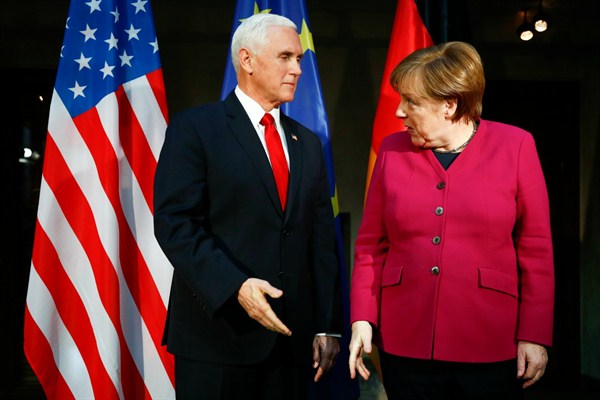The Munich Security Conference, which just wrapped up Monday, is like the Davos of trans-Atlantic security policy, replete with hollow pronouncements, cost-free posturing and, of course, gossip. But every once in a while, amid the conference’s bromides, real news happens. In 2007, for instance, Russian President Vladimir Putin used his speech in Munich to publicly declare the return of Cold War-style geopolitical competition.
This year, too, something newsworthy happened at the conference, but newsworthy in the odd sense that something that has been obvious and apparent to everyone was suddenly acknowledged publicly. Like a couple that, after having slowly drifted apart over the years, wakes up one day to realize suddenly that even the pretense of love is gone, the U.S. and Europe discovered this past week in Munich that they’re just not into each other anymore.
For the past two years, this drift has been attributed to President Donald Trump’s disregard for the postwar pillars of U.S. foreign policy, and in particular his hostility toward multilateralism and security alliances. Trump certainly deserves most of the blame for the sudden decline in trans-Atlantic relations. Yet to diagnose what ails the partnership today is to confront the fact that both sides suffer from self-delusions that, if not dispelled, will further widen the divisions bedeviling the alliance.

